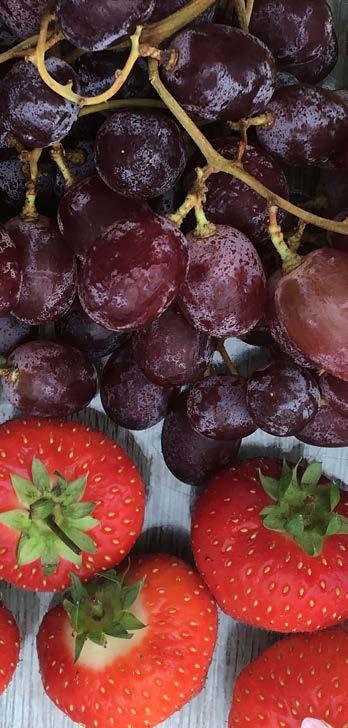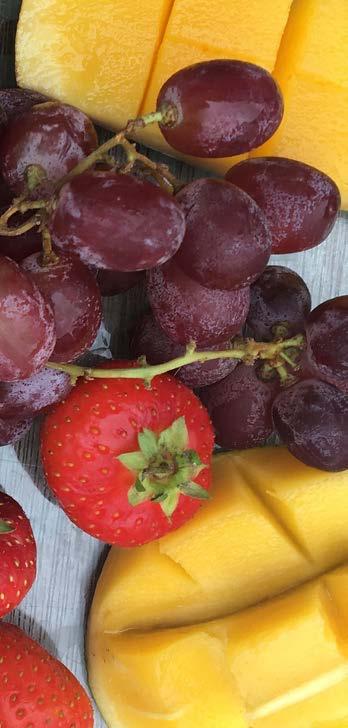
4 minute read
Empowering women in sport. Say no to dieting. Carbohydrates, protein and fats are all friends
by Nwixon
SAY GOODBYE TO DIETING. WE SHOULD NEVER CUT OUT ANY FOOD GROUPS.
We have heard it all before. Counting calories and restricting oneself of food, in order to lose weight. It is particularly common in January, when people are trying to lose weight after overindulging at Christmas. We learn from a registered dietician why we should not take this approach to the food that we eat at any time of the year.
Advertisement
Dieting to lose weight is unattainable because we as human beings, need food in order for our bodies to function at their best, whether we are an athlete or a more sedentary person. We got the breakdown about macronutrients and micronutrients from registered dietician Aisling Pigott (BsC Human Nutrition and Dietetics, PgCert Sports Nutrition, MsC Advanced Dietetic Practice) from Cardiff. She explained that macronutrients are large nutrients which give us energy. These large nutrients are carbohydrates, protein and fats. Micronutrients are nutrients which are needed in smaller quantities, including vitamins and minerals, which are crucial for our metabolism, health and wellbeing. Pigott does highlight that “as a society we are much less active than previous generations. Many of us work in sedentary jobs, drive between locations and have tools which make life easier. Therefore, it makes sense that our energy needs are different. We still need some energy, but this does need to be adjusted.” Carbohydrates and fats especially get a bad reputation. Although carbohydrates are our main source of energy, Pigott thinks that people are afraid of eating them because “Media, social media and celebrity culture have sold us this fear of carbs, so we start to believe it. Bread, rice, pasta and fruit are seen as ‘bad’. This means when we do actually eat them, we are so consumed by guilt.” But when I ask why food should not be deemed as a ‘good’ food or a ‘bad’ food, she tells me that it is because “food is food. It’s amazing, nourishing and delicious. Our relationships and behaviours around food can be good or bad, but food is what keeps us going. When we start to categorise food as good and bad, we start to get caught up in the continuous mixed messages we receive around nutrition, where ‘carbs’ are bad, ‘fat’ is bad, even avocados get a bad rep…all of a sudden, all we are left with is some kale and celery juice.” Something else seen a lot in the media is the word ‘detox’ and the idea that we should be juicing to get rid of toxins from our body, when in fact, our body’s organs are fully capable of doing this. And as Pigott points out cutting out carbohydrates is often “unmaintainable and leaves us feeling a bit glum, tired and craving more.” Instead eat the
carbohydrates, with Pigott suggesting eating “starchy carbohydrates, particularly fibre rich ones like wholemeal bread or rice to provide a slow and steady release of energy.” It is also extremely dangerous when women begin to cut out fats from their diet. Pigott stresses the importance of how women should be eating a healthy, balanced diet, because our nutritional status has a huge impact on our menstrual health. While the macronutrient group ‘fats’ can be misleading as meaning body fat, Pigott says that our body does require some fat for essential vitamins, energy and body stores, and that certain vitamins are only found in fats. “Inadequate energy and body fat lead to amenorrhoea”, medical term for the absence of periods, “which can impact fertility and bone health.” Cutting out fats is not sustainable in the long-term. So, the take home message is to not restrict food, dieting is banned, and to eat a varied, balanced diet with plenty of colour, eating from all the different food groups. And more indulgent treat foods should be enjoyed. If you are craving a pizza, have the pizza. If you just cannot stop thinking about chocolate, eat the chocolate. Just make sure you are doing so in moderation.

Aisling Pigott’s Go-To Workout Snacks
Everyone is different. Some people do not like to eat before exercising as they find that it makes them feel sick. Others need some more sustenance to fuel their workout. Pigott tells us it is based on the intensity of our session. Here is an example of her go-to pre and postworkout snacks.
Pre-workout Pre-workout meals should contain some carbohydrate and be low in fat - nobody wants to feel queasy and full. Lower impact or short workouts may not require lots of carbohydrate. A small banana or some breadsticks and hummus are good ‘go-to-snacks’.
Post-workout Post work-out meals again depend on the length and intensity of the workout. A long, or particularly gruelling workout may require a protein hit – low fat Greek yoghurt with fruit and a drizzle of honey is my ideal post workout snack.










